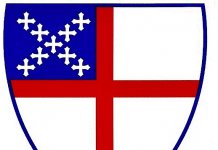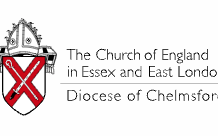In a first for the diocese and the Church of Ireland, Bishop Harold has ordained three OLMs (Ordained Local Ministers at a service in Willowfield Church on Sunday 1 September.
Congratulations to the three new deacons L–R: David Jardine for HMP Maghaberry (Chaplaincy), Stephen Doherty for Glen Community Church and Rory Blake–Knox for Moneyreagh Community Church (pictured above with preacher Bishop Bill Love (Albany) and Bishop Harold).
“The essential thing about ordained local ministry is that it grows up in the locality, is recognised in the locality and is ordained for that particular situation,” said Bishop Harold.
“While I’ve been Bishop I’ve asked people to submit missional projects from different areas in the diocese, where ordination would help that person fulfil the ministry they’re already doing.
“Stephen, Rory and David have established missional ministries in their particular communities and ordination allows them to fulfil their ministry more effectively.”
What is OLM in the Church of Ireland?
First and foremost, it is an ordained ministry – OLMs are deacons and priests in the fullest sense of the word. A priest is a priest and an OLM is not in any way a second class ordained minister. They have a different role but their orders are second to none.
Secondly, it is a local ministry – limited to the parish/group of parishes, rural deanery or archdeaconry. However, ‘local’ may be defined in that context. Hence the selection is for a diocese by a diocese and ministry is subject to the bishop’s licence for a particular locality. Local is not a diminutive term – local ministry is about valuing the locality and empowering the local congregation.
Thirdly, it is a self–supporting ministry – transfer to any form of stipendiary or what is known as non–stipendiary ministry is not possible without attending a Selection Conference and completion of full ministerial training.
Fourthly, it is a supervised ministry – an OLM is always supervised by a stipendiary priest. He/she may have pastoral and liturgical oversight of a parish and be the go–to priest but an overseeing rector/rural dean/archdeacon should always be responsible for administration and chairs the select vestry.
Fifthly, it is a recognised ministry. It is a particular ministry recognised by the Church and for which training has been undertaken and ongoing support is required.
Sixthly, it is a collaborative or team or companion ministry. An OLM is always part of a team of clergy and lay people there to facilitate a ‘healthy church’. The OLM should always see that an essential part of his/her role is to support and work with the stipendiary priest.










